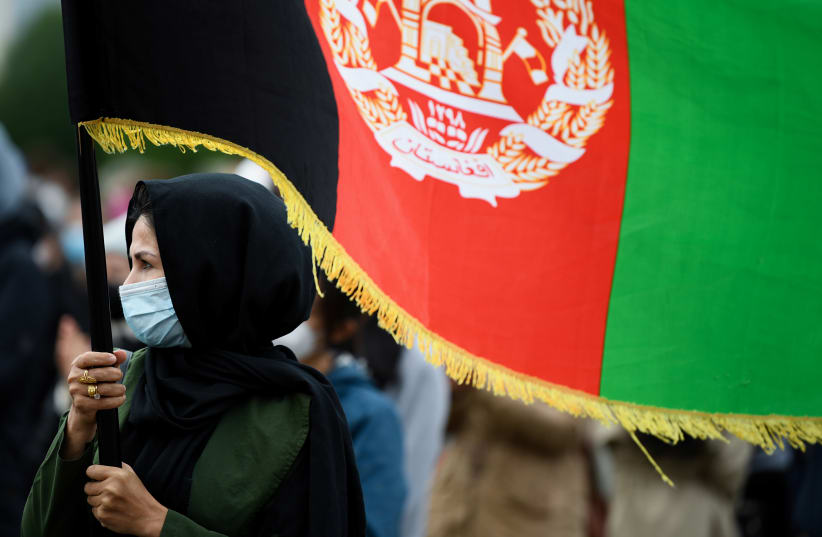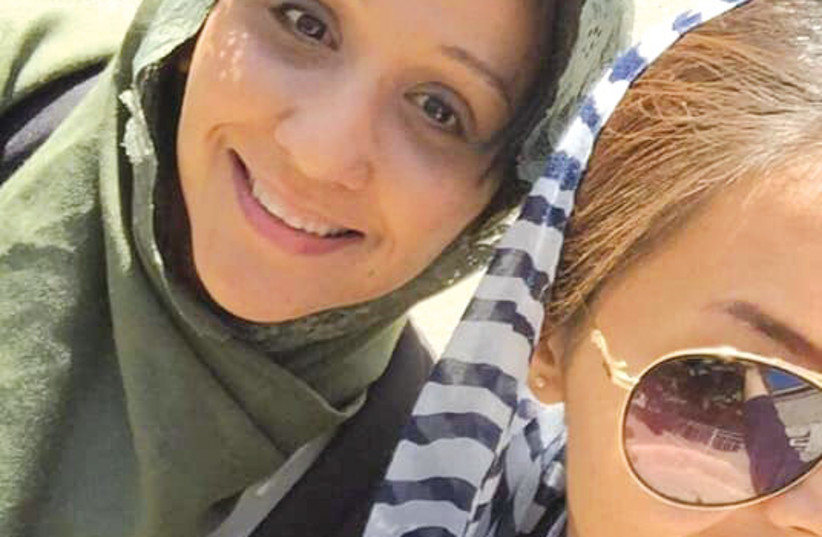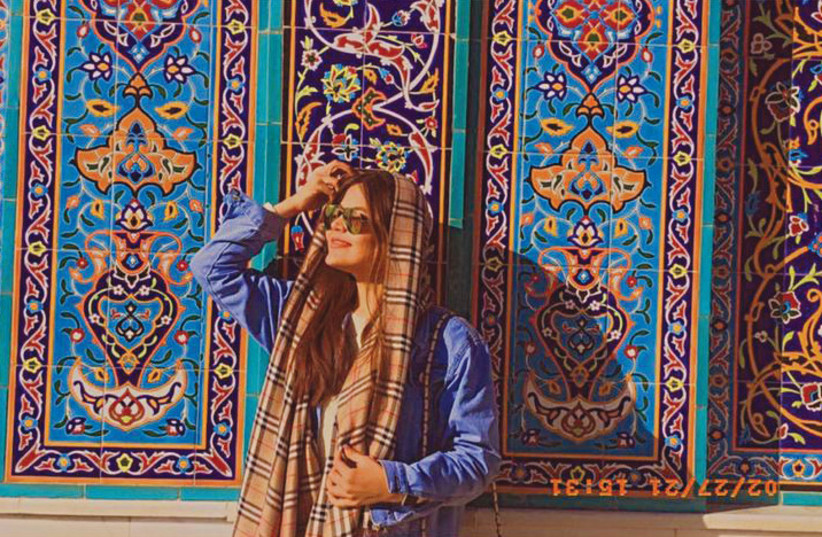Nazzanine Sadid, 25, was an up-and-coming star at the Women’s News Network in Kabul. These days, she is afraid to leave her house in Kabul, knowing that she is a likely target for Taliban attacks.
“The situation is not good,” she told The Jerusalem Report in a WhatsApp video chat. “Afghan women went back to where we were 20 years ago.”
Sadid is on the list for emigration from Afghanistan to Canada and was supposed to be on a plane the day that suicide bombers targeted the airport in Kabul in late August, killing dozens of Afghan civilians and 13 American soldiers. Both the US and Canada stopped their evacuations, and Sadid remains stuck in Kabul.
At first Taliban leaders said they had not come back to Kabul to reimpose all of the restrictions on women that they had imposed the first time they were in power in Afghanistan in the 1990s. For example, at first the Taliban said girls can continue to attend school, even universities as long as classes are segregated. But when high schools recently reopened, only boys were told to come to school and most girls stayed home. Elementary age schoolgirls have returned to class, but with strict gender separation.
A similar situation has unfolded with journalists, said Sadid.
“They didn’t tell us that Afghan women journalists cannot continue their work but indirectly they barred our activities,” she said. A well-known Afghan female journalist was barred from her office, she said, and that was enough to convince most journalists to stay home.
“The Taliban have announced that women can be included in every section of society but their actions are different from what they say,” she said. “The Taliban announced a general amnesty, saying there is no danger to government employees or journalists but it is not true.”
Mohammed Ali Ahmadi, an Afghan journalist based in Kabul, said he was shot on Saturday evening, September 25 by another passenger in a shared mini-van taxi on his commute home, after telling the passenger – a man whom he described as bearded and in his early thirties – that he was a reporter. He survived but was seriously wounded in the leg.
Afghani-Canadian video journalist Brishkay Ahmed said many women are censoring themselves, afraid of what the Taliban might do.
“The Taliban themselves don’t need to force people to act a certain way because people are censoring themselves,” she told The Report.
She said she is especially concerned about the number of women now wearing black burqas, the billowing garment that completely covers women’s faces and bodies, leaving only a small area that they can see through.
“Black is a color associated with funerals and the only place we’ve seen it is when Islamic State comes in like in ISIS-controlled Syria or in rare cases in Qom in Iran,” she said. “If women were wearing the traditional (light) blue burqa we could understand because it is religious and cultural. But the black burqa is extremism.”
She is part of a social media campaign to show women in colorful traditional clothes who are not covering their faces or bodies. She said in many ways she fins this new version of the Taliban, more than the previous one that governed in the late 1990s.
“They are technologically advanced and they have people who are intelligent and highly skilled,” she said. “No matter how they brand themselves they are rooted in sharia law and women will lose a lot of their rights.”
Several groups have been trying hard to get women out of Afghanistan. Israeli philanthropists including Aaron Frenkel, Alexander Machkevich and Sylvan Adams were behind an early September rescue operation to bring 41 asylum-seekers from Afghanistan to Abu Dhabi via Tajikistan.
According to a statement by the Euro-Asian Jewish Congress, Frenkel, the chairman of the organization, teamed up with its honorary president, Machkevich, and Adams to transport the passengers from Afghanistan to neighboring Tajikistan.
Adams funded the charter of a private jet from Tajikistan to Abu Dhabi. The passengers included members of the Afghani women’s cycling team and of a robotics team, some of them women.
All were at risk of reprisals from the Taliban, the statement said, adding that the Israeli humanitarian agency IsraAID and officials from several governments were also involved in the operation.
“When troubling events such as the current situation in Afghanistan occur in the world, we have an obligation to act as leaders,” Frenkel said. “If it is within our power to provide assistance, then it is our duty to come to the rescue of any human being.”
As the Taliban consolidate their control of the country, they are sending a clear message about their future plans for the future role of women. The Ministry of Women’s Affairs was recently converted into offices for the religious morality police, the often brutal enforcers of Taliban Sharia law for women.
For Nazanine Sadid, it brings back some very bad memories. During the previous civil war 25 years ago, her mother was shot and still has shrapnel in her leg.
“I’m 25 years old and I’ve spent my whole life under the threat of war,” she said. “Some of us were born in war, grow up in war, and take their last breaths in war. I don’t want to be a victim of war and that is why I want to leave Afghanistan.”


